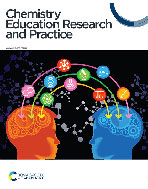Evaluating the effects of the analogical learning approach on eighth graders’ learning outcomes: the role of metacognition
Abstract
Teaching with analogies is an important pedagogy that helps learners construct abstract conceptions through reasoning with something familiar. Heat concepts were chosen for this study because they have an intangible nature and involve complex mechanisms that often challenge school-aged learners. Learning this kind of complex concept with analogies involves complicated mental processes that could demand learners’ metacognitive abilities; yet, to date, the influence of metacognition has been left unexamined. This study therefore investigated how metacognition differentially affected adolescents’ processes and outcomes of analogical learning about abstract heat concepts. Eighty-three eighth graders participated in the study and attended two units of Teaching-With-Analogies on specific heat and heat transfer. This study adopted a mixed-method approach along with within-group comparisons. Among them, eight individuals from each of the high-, moderate- and low-metacognitive groups were interviewed to explore the utilized metacognitive activities and their relation with the ability to reason with analogies. The quantitative findings revealed that analogies benefited the moderate metacognitive learners, and yet did not alter the conceptual understanding of the high and low metacognitive cohorts. A unique explanatory power of metacognition was also observed on the learners’ post conceptual understanding, in addition to on their prior knowledge. Verbal process data illustrated that metacognitive abilities substantially influenced every stage of solving heat problems with analogies. The differential outcomes of the analogical learning approach were explained by in-depth case analyses considering the use of prior knowledge and the absence of metacognition during analogical reasoning. Metacognitive characteristics of the dynamic analogy-inferring process for different metacognitive groups were synthesized. The associated implications for the analogical learning approach and accommodations for adolescents of different levels of metacognition are also discussed.


 Please wait while we load your content...
Please wait while we load your content...